Coleraine: No more births to take place at Causeway Hospital
- Published
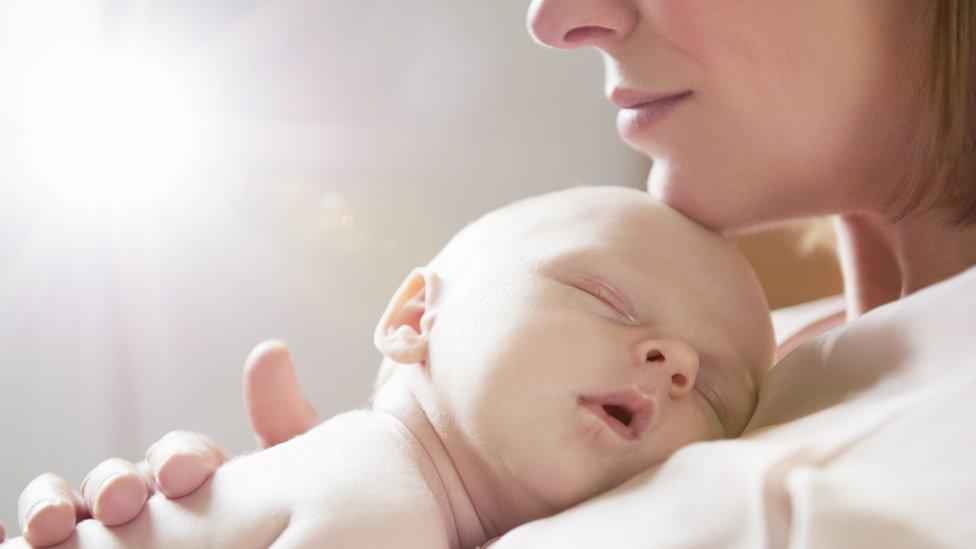
The Northern says birth numbers in the Causeway Coast and Glens area have declined year-on-year
Births will no longer take place at Causeway Hospital in Coleraine, County Londonderry, following a decision by the Department of Health (DoH).
The DoH permanent secretary approved the move to consolidate maternity services at Antrim Area Hospital.
The Northern Trust had recommended that all births in the area should permanently move to the Antrim site.
Antenatal and postnatal clinics will be retained and enhanced at Causeway Hospital, the department said.
Permanent Secretary Peter May said the decision was made to ensure safe, consistent and sustainable care for mothers and babies in the trust area.
The recommendation was made by the Northern Trust board following a 14-week public consultation.
The changes will come into effect from 17 July 2023.
Any women who are due to give birth at Causeway Hospital will be contacted directly by the trust and there is also a helpline to answer any queries from women who are due to give birth at the hospital.
A trust spokeswoman said the decision for all hospital births to go to Antrim Area Hospital was a welcome one.
"We strongly believe this is the best outcome for women and babies in our care," she said.
"It will allow us to continue providing the highest standard of inpatient maternity care and births at one, dedicated site, with a safer, more sustainable staffing model."
The trust said it recognised it had been an uncertain time for the "dedicated team of maternity staff at Causeway Hospital and we will be supporting them through this period of transition."
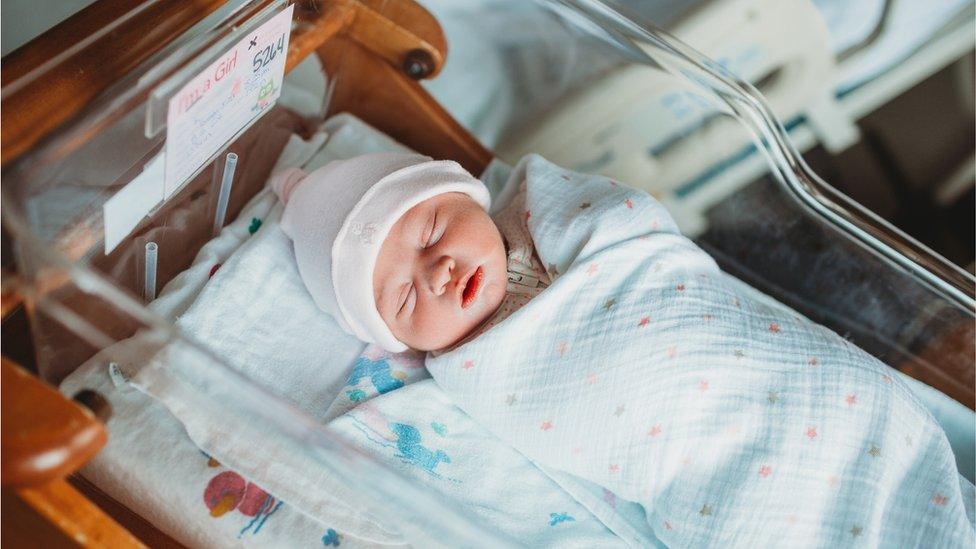
The trust has said birth numbers in the Causeway Coast and Glens Council area have declined year-on-year.
It expect birth rates to fall in the area by 11% within the next 20 years.
The trust had said maternity services in the area were "vulnerable and unsustainable".
The Department of Health said: "[The] unsustainability of the current Causeway maternity unit relates to falling birth numbers at the hospital and associated difficulties of recruiting and retaining consultants and other staff."
The permanent secretary said: "An overriding priority for our health service must be the provision of safe care for our population.
"This decision is in the best interests of mothers and babies in the Northern Trust area."
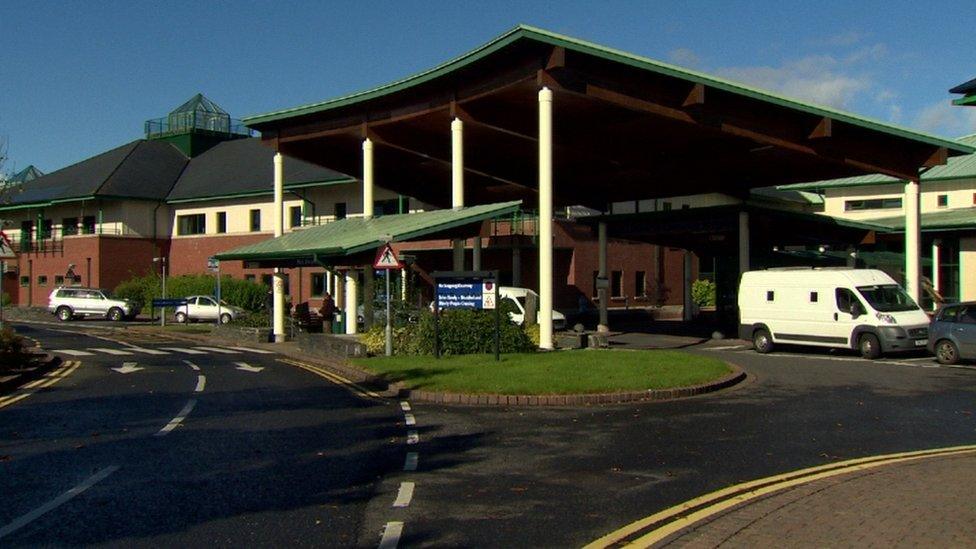
Antenatal and postnatal clinics will be retained and enhanced at Causeway Hospital
He said maintaining the current service across the Causeway and Antrim sites "would not be sustainable".
"Avoiding planned change would simply lead to unplanned and forced change," Mr May added.
Causeway maternity unit has become reliant on locum and temporary staff, making the provision of consistent care more difficult.
Dr Dave Watkins, medical director of the Northern Health & Social Care Trust and a consultant paediatrician, said: "Trying to run two services on two sites clearly dilutes the expertise available and the number of staff available.
"We feel that this is the safest proposal and it allows us to plan forwards for a safe, sustainable and high quality service for our women here in Antrim Hospital."
Anne Wilson from the Royal College of Midwives said: "We are always disappointed whenever there is a reduction in choice for mothers birthing in maternity services - so it is disappointing."
However, Ms Wilson said she understood the reason behind the decision.
"I think ultimately safety of mothers and babies especially giving birth is the main goal and priority here," she added.
The Department of Health said: "Conditions of the approval include making planned capacity changes at Antrim Hospital as outlined in the public consultation."
The trust will also be required to prioritise the development of an interim three-bedded alongside midwife-led unit at Antrim.

A protest was held in Coleraine in May against the cuts to Causeway Hospital maternity services
The department said this will offer additional capacity in advance of longer-term plans for a new-build women and children's unit.
Setting out the department's decision-making process, Mr May said he had reviewed the trust's consultation outcome in line with its policy and guidance on change or withdrawal of service.
"It is also consistent with the wider health transformation agenda which acknowledges that changes need to be made to ensure sustainability of services," he said.
The trust said it was committed to maintaining acute services and an Emergency Department at the site.
"We recognise that the hospital and its staff play a vital role in serving the local community, and we want to enhance rather than diminish that role."
The trust added: "Causeway Hospital will retain its high quality antenatal and postnatal care which we recognise are critical local services for women.
"We will also be enhancing these services so that pregnant women will have access to complex antenatal care and clinics at Causeway Hospital."
Growing concern
Gregory Campbell, the MP for East Londonderry, said he was "disturbed" by the trust's explanation for the move.
He said: "The inability to staff hospital wards and in this case a maternity unit, points to a planning and management failure more than lack of need in the community."
Mr Campbell said the Northern Trust and DoH must spell out the sustainability of the Causeway Hospital.
The proposals had been met with some opposition over the last number of months.
About 100 people gathered in Coleraine town centre after the Northern Trust approved the recommendation to remove births from the hospital in May.
In June Mother-of-three, Heidi Wright from Portrush, said she was concerned about the length of time it would take to travel to Antrim.


In less than a year, the Northern Trust has managed to deliver a major permanent change to how one of its core services will be delivered with little fuss or opposition.
In Northern Ireland that is remarkable.
While for decades transforming health care has been much talked about, in practice little has happened.
Most recently, and in 2016, Prof Rafael Bengoa said Northern Ireland faced "a stark choice".
The man who chaired the last local healthcare review said people could "either resist change and see services deteriorate to the point of collapse over time, or embrace transformation and work to create a modern sustainable service".
At present, these two contrasting viewpoints are being played out across three different health trusts.
In the Southern and Western Trusts, resisting change over many years at Daisy Hill and the South West Acute Hospital (SWAH) has now triggered a rush to transform how some services are being delivered, a move likened by the BMA to "falling off the cliff edge".
Some have said that the change feels "unplanned and out of control".
Politicians have led rallies and debates in protest.
But in the Northern Trust the picture is different.

Officials have said that before maternity services get to to the point of "collapse" they are implementing change that is planned, deliberate and intentional.
While all the health trusts conducted consultations, it seems that Causeway will be able to consolidate all births at Antrim Area Hospital while maintaining an antenatal and post-natal assessment hub at Causeway.
It hasn't been without some public protest - but nowhere near the extent of that seen in Enniskillen and Newry.
All other health trusts must be looking to the Northern Trust in wonder.
How did it do what the Southern and Western trusts couldn't?
The big difference, it seems, is the lack of political interference at Causeway.
In 2016, the then health minister - the DUP's Simon Hamilton - said political consensus was key to the future of NI's health service.
It seems that is much easier said than done.
- Published21 November 2022
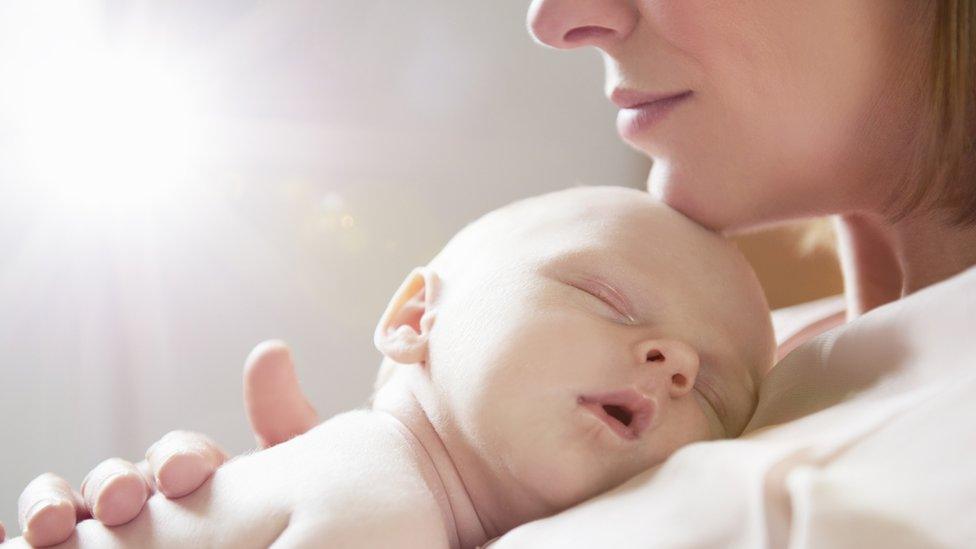
- Published7 June 2023
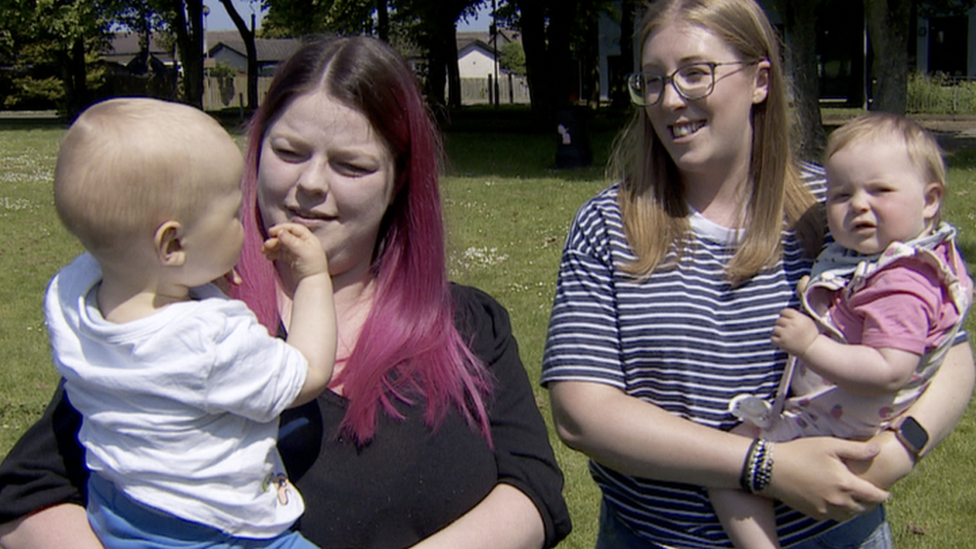
- Published13 May 2023
